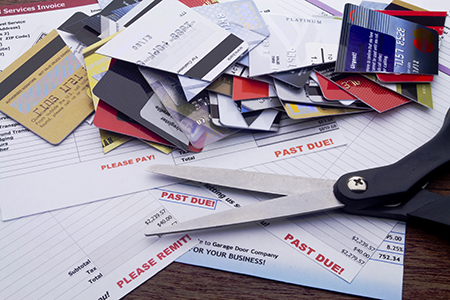Myths about credit cards in the US: What is really true?
Credit cards are an essential part of financial life in the United States, offering convenience, rewards, and the opportunity to build credit history. However, they are also surrounded by many myths that can lead people to make poor financial decisions.
Misinformation about credit cards often causes fear, confusion, and even financial mistakes that could have been avoided. Understanding what is true and what is simply a myth is essential for anyone who wants to use credit cards wisely and take full advantage of their benefits.
Credit cards always lead to debt

One of the most widespread myths about credit cards is that using them will inevitably result in debt. Many people avoid credit cards altogether because they fear falling into a financial trap that will be difficult to escape. While it is true that credit card debt can be problematic, responsible use ensures that credit cards remain a helpful financial tool rather than a source of stress.
Credit card debt usually becomes an issue when individuals spend beyond their means and fail to pay their balances in full each month. Interest rates on unpaid balances can be high, making it easy for small debts to grow over time. However, those who use credit cards responsibly by paying their full balance every month never have to worry about interest charges.
Instead of avoiding credit cards out of fear, it is more beneficial to learn how to use them wisely. By setting a budget and treating credit card purchases like cash transactions, individuals can enjoy the benefits of credit cards without the risk of debt. Additionally, many credit cards offer rewards, cashback, and consumer protections that make them more advantageous than using cash or debit cards.
Closing a credit card improves your credit score
Another common misconception is that closing a credit card account will automatically improve a person’s credit score. Many people believe that eliminating an unused credit card will help their credit standing by reducing the number of open accounts. However, closing an account can actually hurt a credit score rather than improve it.
One reason for this is that closing a credit card reduces the total available credit a person has, which can increase their credit utilization ratio. This ratio is one of the key factors in determining a credit score, and higher utilization can negatively impact it.
For example, if someone has a total credit limit of $10,000 and they use $2,000, their utilization rate is 20%. Additionally, keeping older credit accounts open helps maintain a longer credit history, which is another factor that influences a credit score.
A long credit history demonstrates responsible credit management, and closing older accounts can shorten this history. Unless there is an annual fee or another valid reason for closing a card, it is often better to keep it open, even if it is not being used frequently.
Having multiple credit cards hurts your credit score
Many people believe that having multiple credit cards will automatically lower their credit score and signal financial instability to lenders. While it is true that excessive credit applications within a short period can have a temporary negative effect, simply owning multiple cards does not harm a credit score.
In fact, when managed properly, having multiple credit cards can actually help improve financial standing. A major factor in a credit score is credit utilization, which compares the amount of credit being used to the total credit available.
When someone has multiple credit cards with high limits but only uses a small portion of their available credit, their utilization rate remains low, which can positively impact their credit score. Another benefit of multiple credit cards is flexibility.
Different cards offer different benefits, such as rewards programs, cashback on specific purchases, or travel perks. By strategically using different cards for various expenses, cardholders can maximize their financial benefits.
Carrying a balance improves your credit score
A persistent myth in the financial world is that carrying a balance on a credit card helps build a better credit score. Some people mistakenly believe that keeping a small unpaid balance each month proves they can manage credit responsibly and increases their chances of getting approved for loans.
However, this is not how credit scores work, and carrying a balance only leads to unnecessary interest charges. The most important factor in calculating a credit score is payment history. As long as credit card payments are made on time, a person’s credit score will improve, whether or not they carry a balance. The second most important factor is credit utilization, which is best when kept low.
Keeping a balance does not benefit either of these factors and only results in higher costs for the cardholder due to interest payments. Credit card issuers make money when customers carry a balance because they charge interest on the unpaid amount.
This is why some people may believe that carrying a balance is good practice. In reality, the best approach is to pay the full balance every month. Doing so avoids interest charges while still helping to build a strong credit history.
Credit cards are unnecessary if you have cash or a debit card
Some people believe that if they always use cash or a debit card, they have no need for a credit card. While it is possible to manage finances without a credit card, doing so can mean missing out on significant advantages that credit cards provide.
One major benefit of credit cards is the ability to build a strong credit history. A good credit score is essential for securing loans, renting apartments, and even getting better insurance rates. Without a credit card, it can be difficult to establish a credit history, making future financial opportunities more challenging.
Debit cards and cash transactions do not contribute to a credit score in any way. Credit cards also offer better protection against fraud and unauthorized charges compared to debit cards. If a fraudulent transaction occurs on a debit card, the money is immediately withdrawn from the account, which can create financial hardship while waiting for the bank to resolve the issue.
Graduando em Física e redator desde 2023 na empresa de publicidade SPUN Midia, com experiência em escrever sobre finanças, entretenimento, educação e mais. Contato: [email protected]





